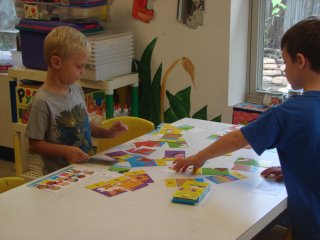
Preschool behavior: Who's the boss?
Carol Hunt
Raising kids
Does your preschooler tell you he hates you, or not to look at him? Does your child hit you?
When preschoolers tell parents or other family members they hate them or if they hit their parents, it is usually to get their own way. Children this young can learn to manipulate parents through the parent's emotions.
To change this behavior, start by ignoring your child's statements while maintaining your expectation that the child do as told. Discussing your child's statements or answering back gives attention to the behavior and reinforces it. This will only make it more likely your child will continue to tell you they hate you. In other words, your good intentions backfire. Therefore, do not answer back.
When your child is talking and behaving appropriately, give all kinds of positive attention. Make sure you take the time to comment when you catch your child behaving well. This will make a big difference.
The same rule holds true when preschoolers hit their parents. Ignore and redirect to the task at hand if possible, or in a firm voice say, "No hitting." Forgo any discussion on the matter as this only provides attention and actually reinforces the behavior. Certainly never hit back. This only models bad behavior and creates anger and resentment in the child.
Time out may also be used as a strategy by moving your child away from any activity that is fun or rewarding for a short period of time. When you observe quiet behavior from your child, then direct your child to do as previously requested.
Behavior can change rapidly, usually within three to 10 days when using these strategies. The first few days can be especially trying. The trick is keeping your cool under stress, redirecting behavior where you can, ignoring behavior that is a nuisance but not serious, using time out for misbehavior that is truly out of line and, most importantly, reinforcing behavior that is appropriate - catching a kid being good.
Be consistent, remembering that your child is learning how to behave and much practice will be needed before your child gets it right.
Carol Hunt is the executive director of Resource Connection For Kids.
Comment: Well behaved children never hit parents. Children who have had some formation would never dream of it. The advice is good, however, and always take the time to praise good behavior.

No comments:
Post a Comment